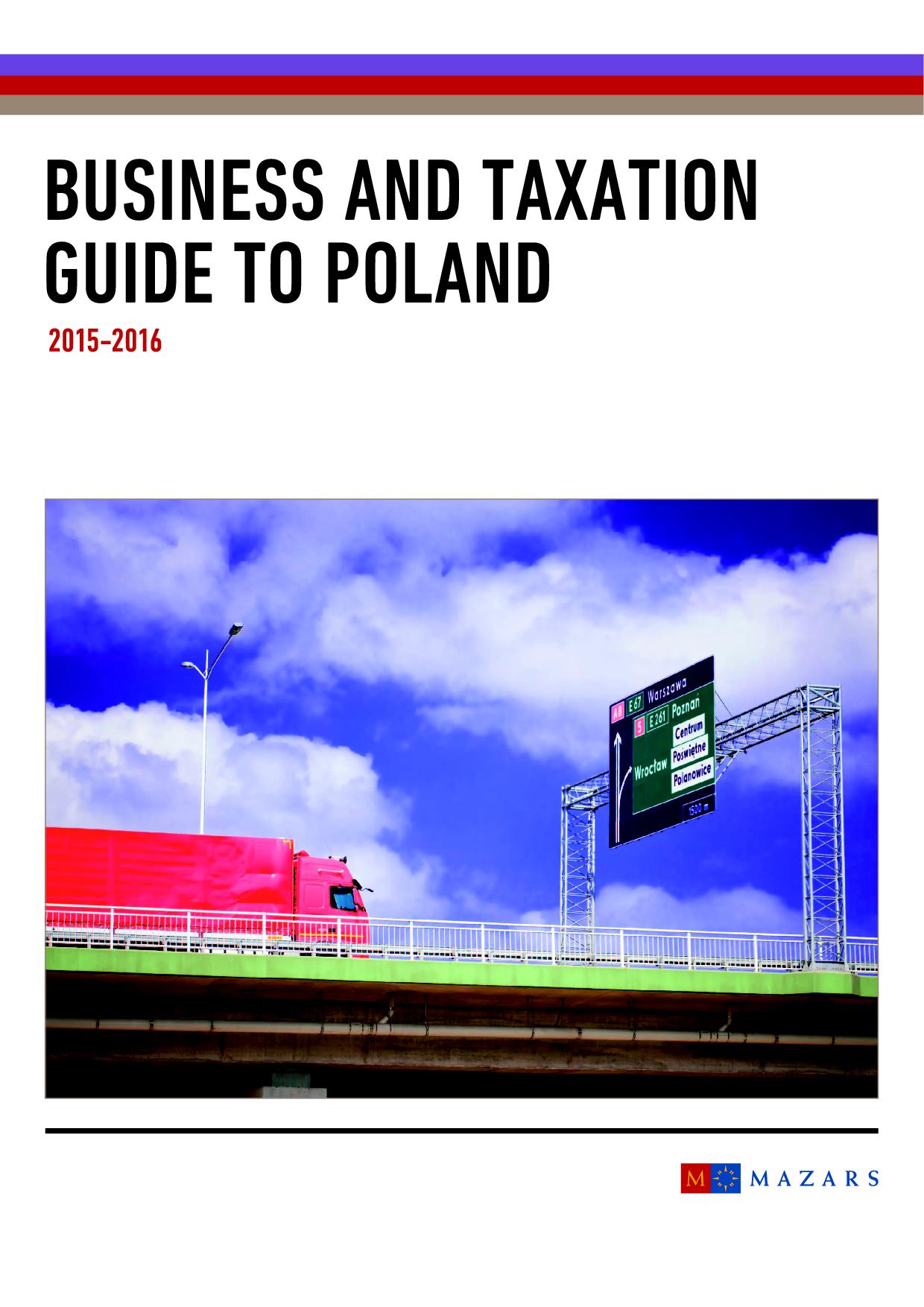Business and Taxation Guide to Poland
The Polish market offers foreign investors some very interesting opportunities. During the recent financial crisis, Poland has been one of the only EU countries not to fall into recession. Due to relatively large number of citizens (approximately 38 million) and constantly growing domestic consumption, diversity of economic structure and good access to Eastern and Western European markets, Poland is already appreciated by a significant number of foreign entrepreneurs.
Stable inflation and economic growth offers foreign investors a relatively safe economic environment with long-term opportunities. What is more, the probability of the economic crisis impacting investments is widely regarded as low due to the low level of public sector debt, currently 55% of Polish Gross Domestic Product (GDP) in comparison to the average EU27 of 80% of GDP. In addition, Poland offers foreign investors a number of tax breaks and direct grants, as well as 14 special economic industrial and technology zones and a modernised infrastructure.
Table of Contents:
- General information
- Regulation of foreign investment
- Government incentives
- Business organisations available to foreigners
- Setting up and running business organisations
- Corporate taxes and social charges
- Personal taxation
- Double taxation agreements
- Sales and use taxes
- Portolio investments for foreigners
- Trusts
- Practical information
Mazars has over 20 years of experience on the Polish market with two entities employing over 180 professionals in Warsaw and Cracow which offer Polish and foreign companies from diverse sectors of economy a wide range of services including audit, business and tax advisory as well as accounting and outsourcing, HR advisory and payroll.

